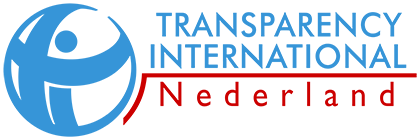Amsterdam, 25 maart 2015 – Transparency International Litouwen heeft een prachtige anti-corruptie opleiding opgezet in Vilnius, Litouwen, van 6 tot 12 juli 2015. Speciaal voor toekomstige leiders en beginnende anti-corruptie professionals. Hieronder lees je meer over de School of Integrity en hoe je je kunt inschrijven:
What is Transparency International School on Integrity?
Transparency International School on Integrity (TISI) is an annual state-of-the-art anti-corruption and accountability training for future leaders. This year TISI 2015 will take place during 6 – 12 July, 2015. TISI exposes its participants to the latest developments in the field of anti-corruption and accountability and offers real opportunities to try and implement their ideas in practice.
Following a rigorous selection process, selected students spend 7 highly intensive days learning from leading anti-corruption and accountability professionals. TISI seeks to create a peer-to-peer learning and integrity-building environment that links theory with practice and helps young leaders to acquire better skills in bringing the anti-corruption message across.
School lectures, seminars, training and field trips provide TISI participants with a unique blend of international and local know-how, while also challenging the students to approach the subject from outside the box and offer novel, previously untested solutions. Since 2010, TISI has welcomed almost 500 youth leaders from more than 85 countries worldwide. See our Alumni network here.
Is this School for you?
This one is easy. TISI is for senior students, graduates and young professionals eager to learn how to make a stand against corruption and to achieve greater transparency in their country. The seven-day format offers a powerful mix of an intensive academic schedule, unconference-like atmosphere and continuous peer-to-peer interactions which all makes it into an unforgettable one-week-long adventure.
TISI usually hosts an equal share of participants from private and public sectors, NGOs and academia from Europe, Asia, Africa and the Americas. Such diversity in background and experience further strengthen our applied approach to anti-corruption and transparency. So, the students not only learn about the causes of corruption but also spend a larger part of their time learning practical ways in which societies can become more transparent and accountable.
In July 2015, once again we will welcome around 140 future leaders from more than 60 countries for a seven day event in the beautiful Lithuanian capital Vilnius. The number of places and scholarships is limited, so we encourage you to apply fully prepared and well in advance.
What will you learn?
TISI is organized in cooperation with Mykolas Romeris University in Vilnius. Upon completion of the TISI course, the students receive 6 ECTS (European Credit Transfer System) credits, which only stresses the fact that you come to school to learn and are required to do additional preparatory reading before the School starts. The course reading material is published in advance and students are encouraged to get in touch with TISI organizers for additional reading suggestions.
The School curriculum is presented through a variety of learning modules such as lectures, seminars, training, discussions, field trips, film screenings and social events. The program follows a conscious schedule which, as the week goes by, gradually moves away from introductory topics to seminars and training aimed to address particular subjects and let participants to acquire new skill sets. In short, the aim of the program is to leave you inspired and empowered by creating opportunities to learn in small groups as well as through mentoring hours.
The School features three teaching modules that cover the public sector, the private sector and civic empowerment tools. Each module deals both with theory and practice and includes:
Public sector – grand and small corruption, measuring corruption, state capture, political party financing, public procurement, etc.
Private sector – international anti-corruption mechanisms, corporate reporting standards and corruption in different industry sectors, such as the media or sports, etc.
The civic empowerment module addresses the role of citizens in monitoring the activities of the state and explores ways in which people can become involved in the public decision-making process, in reporting corruption and in anti-corruption activities.
While the 2015 School program is currently being finalized, please see the 2014 curriculum for a glimpse of what the week at TISI looks like.
What’s next? Apply for a grant to take action.
We believe young people have extraordinary potential to create change. So, at TI School we seek to put our alumni in a position where they can use their newly-acquired knowledge and test their ideas in practice. We also know that anything good has to be sustainable and develop organically. This is why during TISI, interested students are assisted in developing their unique micro-project proposals, which can then compete for financial support from our partners at the IACC and the Ashoka Foundation. Innovative game-changing ideas can receive an action mini-grant of up to 5000 EUR and be assisted by TI School team to help implement the best ideas back in their home countries.
Learn more about this Social Entrepreneurs Initiative here.
The application process
Applying is really simple – just fill out and submit our online application form. Please note that you will be asked to upload a short motivational letter along with your Europass CV. We strongly advise that you prepare these in advance and have them ready before you start filling out your application form.
Who can apply?
The School is open to senior students, graduates and young professionals under the age of 35.
We welcome individuals from public, private, non-governmental and academic sectors, from all academic backgrounds.
TI School does not discriminate its applicants on the grounds of race, color, national origin, disability, sex, gender identity, religion, political beliefs, marital, familial or parental status, sexual orientation or any other basis.
